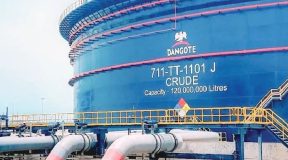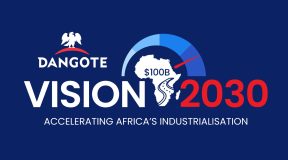Dangote Petroleum Refinery has urged Nigerians to resist what it described as “self-serving union interests” after the Petroleum and Natural Gas Senior Staff Association of Nigeria (PENGASSAN) and the Trade Union Congress (TUC) declared industrial action against the company.
In a statement on Monday, the refinery accused the unions of prioritising the struggle for workers’ check-off dues over the genuine welfare of employees. The company criticised the TUC for declaring full solidarity with PENGASSAN without verifying claims against the refinery, describing the union’s position as “zombie-like.”
“We are told that he who hears only from one side and passes judgment without hearing the other side is a fool. Unfortunately, the Trade Union Congress has placed itself in that position,” the refinery said.
Dangote alleged that PENGASSAN’s main agenda was to secure monthly check-off dues, citing comments from its president, Festus Osifo, who reportedly wrote to Dangote Refinery demanding dues just a day after workers unionised.
The company dismissed both PENGASSAN and TUC as “twins from the same womb,” accusing them of funding lavish lifestyles with workers’ money while neglecting accountability.
“On account of these monthly check-off dues, PENGASSAN and its collaborators — including TUC — are ready to plunge Nigeria and Nigerians into utter darkness and anarchy,” the statement added.
Dangote Refinery called on the federal government to resist what it termed attempts by labour leaders to drag the country back to the “dark ages” of energy insecurity. It also challenged the unions to publish their financial records for workers’ scrutiny.
The clash follows the termination of over 800 Nigerian employees, a move PENGASSAN condemned as an unfair labour practice. On September 26, the union directed its members to begin a nationwide strike, while on September 29, the TUC backed the directive, demanding immediate reinstatement of the sacked workers.
The escalating dispute between Dangote Refinery and Nigeria’s labour unions is now seen as a test case for workers’ rights, union accountability, and the future of Africa’s biggest oil project.


